The Foundation Series by Isaac Asimov
A Futuristic race to save his world of Trantor.
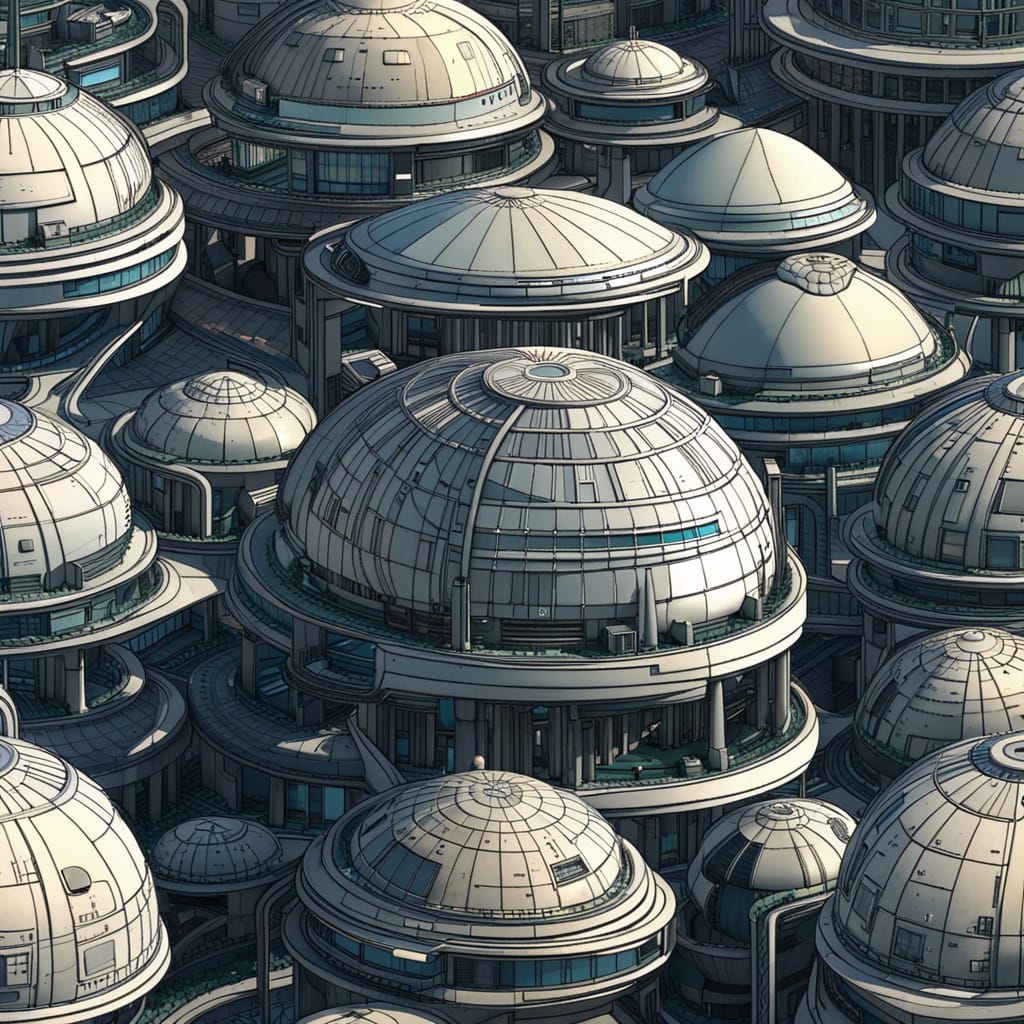
I didn't understand myself when I was growing up in the 'not so rich' Caribbean neighborhood of Waterloo (aptly named, because every year during the hurricane season, the Heavens opened up and rained down so much water, it washed the road and some houses away). Only later did I learn that we were living directly below a sugar cane 'plantation' where water was redirected as a runoff for the crop. Luckily, our little house was perched safely upon a questionable hill which barely kept us safe.
I was living in a 'low budget' household, yet none of that registered to my brain. I was completely lost in a world of my own, lost in books and fantasy, always dreaming and a bit oblivious to actual life. I was the fourth child of eight, the first to graduate from high school. The first to get a job, my three older brothers were self-employed. So, I went to work and helped with the household, I was the one everybody depended on, and I also went back to night school. It was hard, especially for a young person whose head seemed to be screwed on differently than everybody else's. I was not popular, I was weird by everybody else's standards. Books and reading were my savior.
I realized I loved detective stories, ghost stories, stories of superheroes saving the world, but most of all science fiction. I loved discovering what lie beyond the horizons where we could not see. Star Trek had been a big deal, with modern updates keeping it alive.
Then I found the Isaac Asimov stories. I saw such possibilities within this fantasy world that he had created. It made everything seem possible, made me feel that it was ok to dream, ok to not be like everyone else. I could dare to be and accept myself for who I am.
The Foundation series is a science fiction book series written by American author Isaac Asimov. It was first published as a series of short stories in the 1950s. For nearly thirty years the series was in the form of a trilogy: Foundation; Foundation and Empire; and Second Foundation. It won the one-time Hugo Award for "Best All-Time Series" in 1966. Asimov later added new volumes, with two sequels: Foundation's Edge and Foundation and Earth, and two prequels: Prelude to Foundation and Forward the Foundation.
Hari Seldon spends his life developing a theory of Psychohistory, a new and effective mathematics of sociology. This entails using statistical laws of mass action, which then can predict the future of large populations.
Seldon predicts the fall of Empires and the Milky Way, summoning a Dark Age which will last 30,000 years before a new Empire will arise.
Asimov takes the reader on a wild ride as Seldon seeks to devise a plan to halt the oncoming chain of events, by deflecting it just a little to limit this interregnum (a gap or pause in a social order) so it will last for only one thousand years.
I read the first book years ago and was completely fascinated by the premise of a domed society in outer space which saves humanity from utter and complete annihilation.
The really unbelievable notion of being a writer and acquiring inspiration on the spur of the moment is really incredible. This is noted by something Asimov said happened around 1942.
According to Asimov, the premise was based on ideas in Edward Gibbon's History of the Decline and Fall of the Roman Empire, and was invented spontaneously on his way to meet with editor John W. Campbell, with whom he developed the concepts of the collapse of the Galactic Empire, the civilization-preserving Foundations, and psychohistory.
Inspiration can arrive at any time and be hidden within a myriad of unrelated ideas. That is why I love writing, I believe that I can be as great as I want to be, even if it only in my own mind, even if others take little or no interest, or laud my work and sing its praises.
This futuristic fantasy by Asimov has stayed with me over the years. He was a gentle, kind genius, loved by many, envied by a few and outwitted authority by gently nudging them to do exactly what he wanted, all the while thinking that it was what they wanted.
I have always been a huge fan of fantasy and science fiction, I would devour any books that came along, whether they were comic books, hard cover or whatever the case may be. I would read it with great alacrity and enthusiasm, so when Foundation made its appearance, I was ecstatic.
First there was Foundation (1951)
In this first book Seldon's views are seen as treasonous, as any new ideas are usually treated by those in power. He and his apprentice are arrested.
He informs the Commission that an alternative to this future is attainable and explains to them that creating a compendium of all human knowledge, the Encyclopedia Galactica, may not prevent the inevitable fall of the Empire, but would reduce the dark age to one millennium.
Seldon is exiled to a remote world, Terminus, with others who could help him create the Encyclopedia. He accepts their offer, but despite the Empire's belief it won by exiling Seldon, the outcome was exactly what he had intended and hoped for. Terminus would be the home of the first Foundation while a second would be established "at Star's End." Seldon then reveals that he is dying, and implores Dornick, his apprentice, to become a leader in the new Foundation.
The fight for his ideas coming to fruition had begun.
First Book 1951
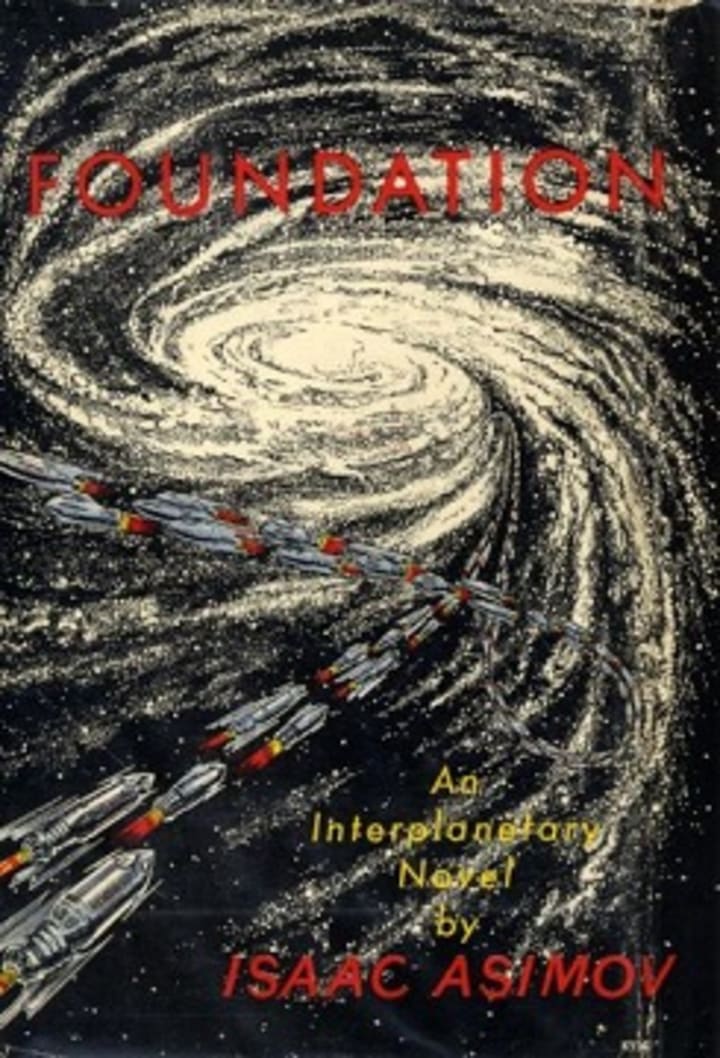
The second book (1952)
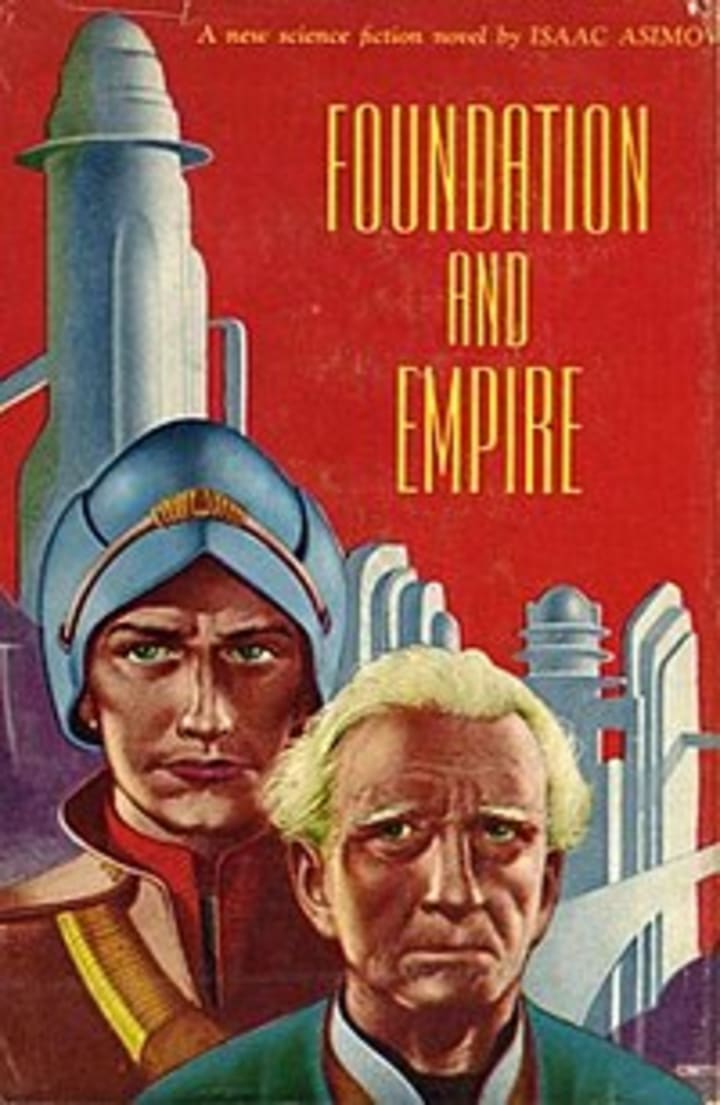
Government, Foundation and Psychohistory.
1953

A second Foundation and an intent on destruction.
1982
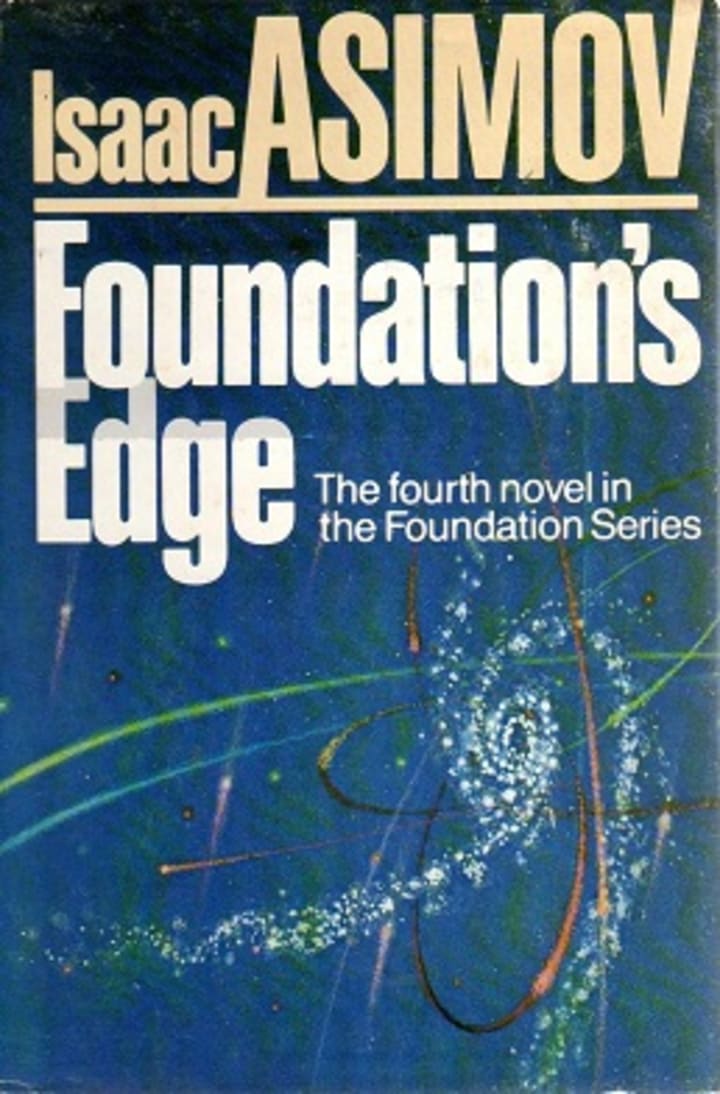
Five hundred years later, the foundation flourishes.
1986
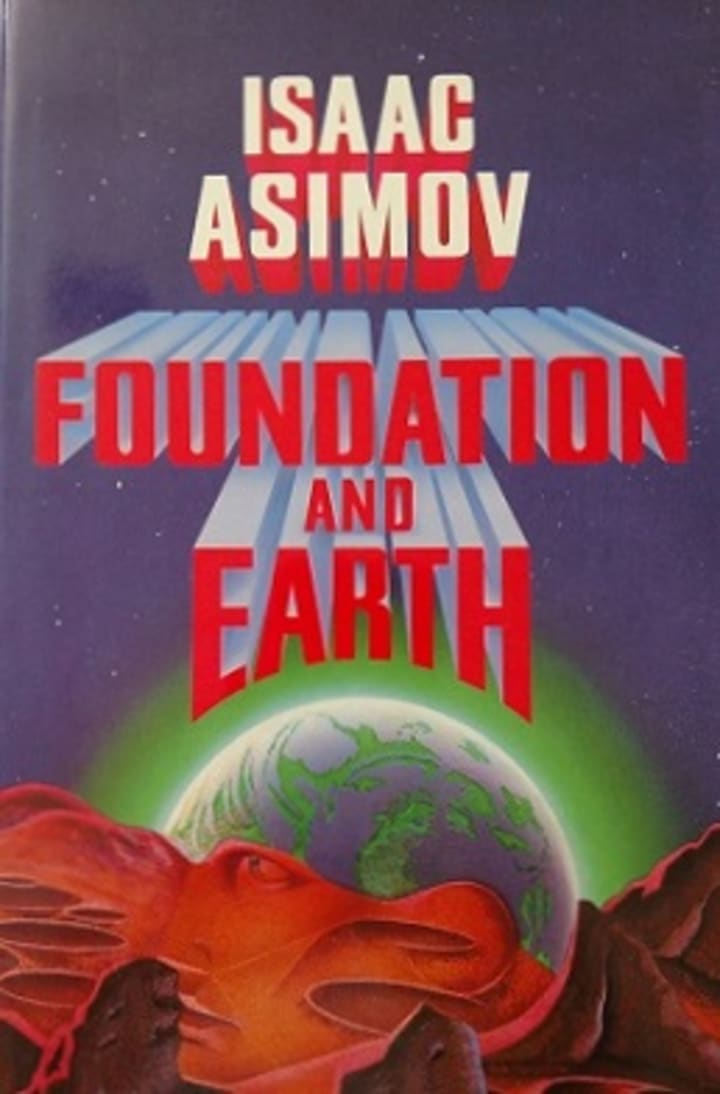
Several centuries after the events of Second Foundation, two citizens of the Foundation search for Earth, the legendary planet where humans are said to have originated. Even less is known about Earth than was the case in Foundation, when scholars still seemed to know the location of 'Sol', also called Earth..
1988
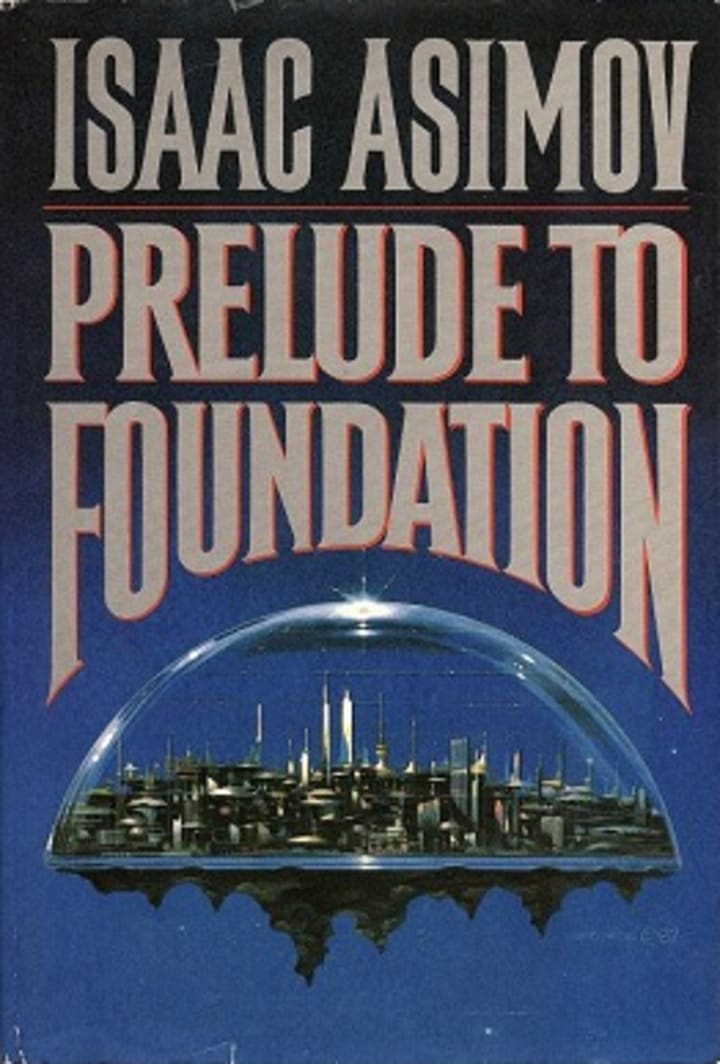
Here we go back to the beginning, when Seldon first presents his ideas on Psychohistory.
Prelude to Foundation opens on the planet Trantor, the Empire's capital planet, the day after Hari Seldon has given a speech at a mathematics conference. Several parties become aware of the content of his speech (that by using mathematical formulas, it may be possible to predict the future course of human history).
1993
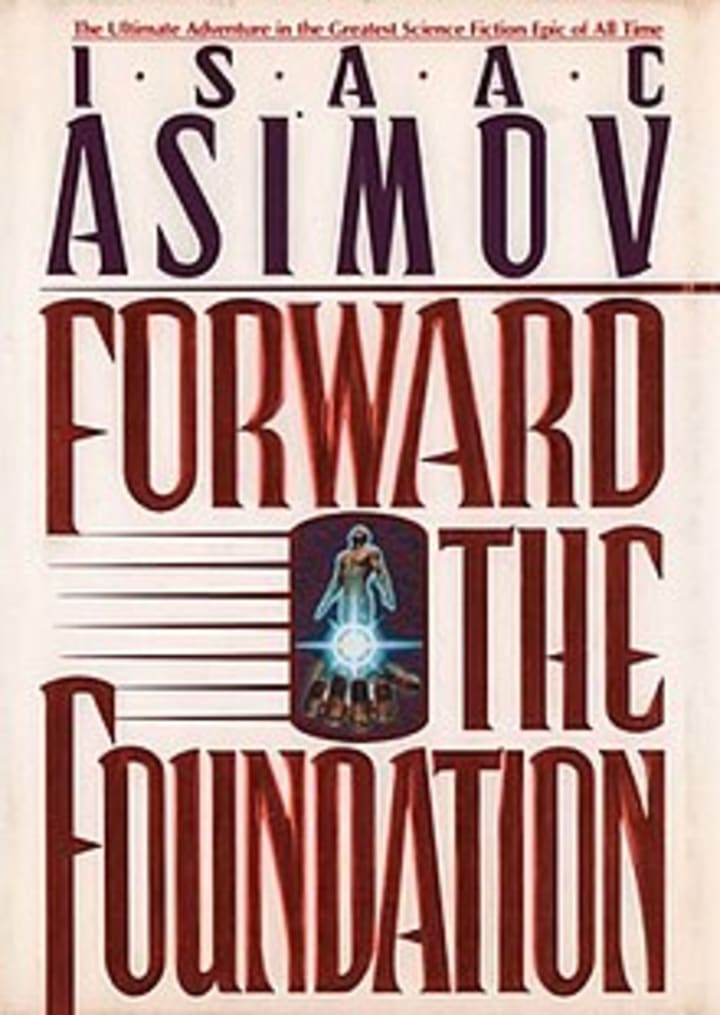
Forward the Foundation is a novel by American writer Isaac Asimov, published posthumously in 1993.
I have many times tried to write a similar story based on this great work of science fiction. It really was a literary work way ahead of its time. We may soon need to revisit these books to find a way to survive in the years to come.
I read somewhere that a movie was being developed on this premise by Asimov. I hope to see it sometime.
........................................................................................................
About the Creator
Novel Allen
Clouds come floating into my life, no longer to carry rain or usher storm, but to add color to my sunset sky. ~~ Rabindranath Tagore~~
Enjoyed the story? Support the Creator.
Subscribe for free to receive all their stories in your feed. You could also pledge your support or give them a one-off tip, letting them know you appreciate their work.
Reader insights
Outstanding
Excellent work. Looking forward to reading more!
Top insights
Excellent storytelling
Original narrative & well developed characters
Expert insights and opinions
Arguments were carefully researched and presented
Eye opening
Niche topic & fresh perspectives
Heartfelt and relatable
The story invoked strong personal emotions






Comments (2)
Isaac Asimov even wrote many short books-How we came to know about.... things that taught the young person about simple medicine. I love some of his works
I first came to know about Isaac Asimov only about a few days back when I read Mark Gagnon's piece about him. Asimov is so brilliant to have written such futuristic stories in the 1950s!